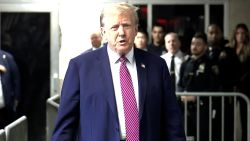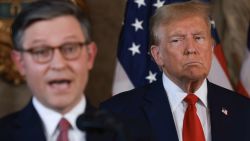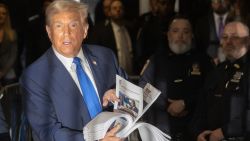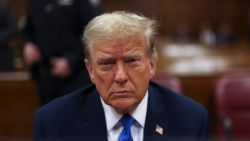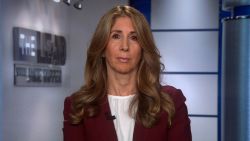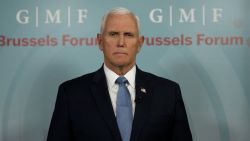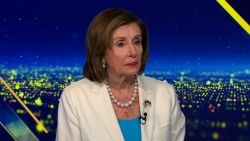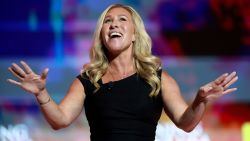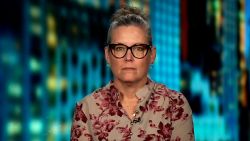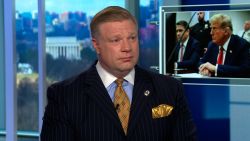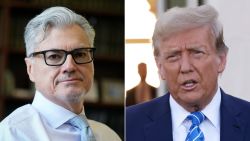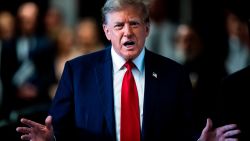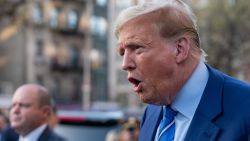One evening during his tenure as Secretary of State Rex Tillerson was out to dinner in Washington when the restaurant owner asked if he would like to say hello to the Mexican Foreign Minister, Luis Videgaray, who also happened to be at the same establishment. As they walked to the back of the restaurant Tillerson was shocked to find Videgaray, who Tillerson did not know was in town, dining with President Donald Trump’s senior adviser and son-in-law Jared Kushner.
The surprise encounter was revealed by Tillerson when he quietly met senior staff of Democratic chair Rep. Eliot Engel and ranking Republican Rep. Michael McCaul from the House Foreign Affairs Committee last month.
A transcript of that discussion obtained by CNN reveals Tillerson’s frustrations with Kushner who sometimes seemed to act as a shadow secretary of state on many important foreign policy issues behind his back.
Tillerson who was unceremoniously fired by Trump last March spoke at length about how Kushner did not consult with the State Department or other agencies before getting involved in foreign affairs.
Tillerson also met Engel and McCaul, but there is no transcript of that meeting, which was agreed to before the meeting took place.
“I could see the color go out of the face of the Foreign Secretary of Mexico,” Tillerson told the staffers, about the inadvertent restaurant meeting, according to the transcript. “I said: Welcome to Washington. And I said: I don’t want to interrupt what y’all are doing I said: Give me a call next time you’re coming to town. And I left it at that.”
While Tillerson said that he later learned that the two men discussed matters that had already been run through the State Department and had his approval, he said that the foreign minister “was rather shocked” to learn that Kushner had not told the then-secretary about their meeting beforehand.
“One of the challenges I think that everyone had – has had to learn to deal with was the role, the unique situation with the President’s son-in-law and daughter being part {of} the White House advisory team. That’s, you know, it’s unusual. I don’t recall it ever being the case before, not that there’s anything wrong with it,” Tillerson said, according to the transcript.
“There was not a real clear understanding of the role, responsibilities, authorities, and whatnot, which made it challenging for everyone, I think, in terms of how to deal with any activities that might be undertaken by others that were not defined within the national security process itself,” he said.
When asked about this characterization, Kushner’s camp has pushed back.
“Jared and the White House were coordinating with the state department, the problem is that Rex Tillerson couldn’t figure out how to coordinate with the state department,” wrote an Administration official.
Kushner’s involvement in Middle East policy
Despite his lack of experience, Kushner was immediately thrust into the center of US foreign relations – with responsiibility for many tough issues facing the administration.
His portfolio has expanded to include a globe-spanning collection of foreign assignments.
But it was Kushner’s involvement in issues related to the Middle East policy presented particular problems for Tillerson, especially those involving Saudi Arabia, as the President’s son-in-law has maintained close personal ties with the Kingdom’s Crown Prince, Mohammad bin Salman.
Tillerson said that he did not have a “particularly unique” understanding of the relationship between Kushner and the crown prince but did say that he was aware there was “a lot of communication” between the two men and occasional trips.
He also said that Kushner mapped out a comprehensive strategy for US-Saudi relations – a plan that Tillerson said he was only informed of very late in the process.
“At some point… Mr. Kushner contacted me and said: You know, I’d like for you to meet with this person so they can review – this is what we’ve been working on for some time, so you could take a look at that,” Tillerson said during his interview.
Tillerson then reviewed the plan, which included arms sales to Saudi Arabia and a “roadmap” for the future of the US-Saudi relationship. Tillerson did not appear to know the details of how the project had evolved but said he brought a State Department official with him to hear the contours of Kushner’s plan.
Additionally, Tillerson was asked about events that occurred in May 2017 ahead of the President’s decision to support a blockade of Qatar, led by the Saudis and United Arab Emirates.
At that time, Tillerson was in the Saudi capital of Riyadh prior to the President’s Middle East summit but said that he was not aware that tensions in the region had risen despite indications that the situation was escalating.
He was also unaware that Kushner and Steve Bannon had hosted a private dinner with the rulers of Saudi Arabia and UAE around that time where the Gulf leaders presented their plans for a blockade of Qatar, according to the transcript.
‘It makes me angry’
“What is your reaction to a meeting of that sort having taken place without your knowledge?” Tillerson was asked during the May interview.
“It makes me angry,” he responded. “I didn’t have a say. The State Department’s views were never expressed.”
While Tillerson would not explicitly address questions related to Kushner’s views of the blockade, he suggested Kushner and Bannon could have known it was going to happen. Tillerson also made it clear that he and then Secretary of Defense James Mattis were kept in the dark and blindsided when the announcement was made.
“I was surprised,” Tillerson said. “I think both Secretary Mattis and I both felt, given the significant footprint of our Defense Department assets and my role, that someone would have called us and told us.”
Kushner also did not tell Tillerson or anyone at State that he or his family was seeking the help of a Qatari sovereign wealth fund to refinance a property that they owned in New York City, and that their efforts had failed. But according to the transcript Tillerson refused to engage in a study of the timeline which, if extrapolated, could have indicated a connection between the refinancing and the blockade. Tillerson said he never had a conversation at State on how Kushner family finances could impact foreign policy.
Tillerson on Trump
Just as Tillerson had to handle the challenge of working with Kushner, he also experienced a learning curve in his working relationship with Trump. Tillerson said that the information he gave to Trump had to be brief in order for the President to absorb it.
“I learned to be much more concise with what I wanted to bring in front of him. Early days I came in with way too much information,” Tillerson said. “It caused me to have to get very, very focused on, you know, what’s the most important thing I want him to remember about this discussion.”
The House staffers were particularly interested in Trump’s May 2017 meeting with Russian President Vladimir Putin in Hamburg, Germany. Tillerson said Putin seemed to be more prepared than Trump for the encounter.
“The meeting went much longer than the scheduled 30 minutes. So obviously the discussion was longer, lengthier. And on the issue that we proposed, President Putin had a great deal of interest in it. And he had clearly done a lot of thinking about it,” Tillerson said, without specifically detailing what that issue was.
“We didn’t undertake that kind of preparation for the President because we didn’t expect that that’s the way it was going to go now. As it played out, the President engaged with his views. He asked me on several occasions, you know, what did I think about what was being discussed.”
Tillerson did say that Trump raised the issue of election interference when the two met in Hamburg. “The President did raise it, I can tell you that,” he said.
In addition to discussing the meeting with Putin, Tillerson said he faced challenges hiring staff to fill key roles in the State Department.
“It was very difficult to get people through the vetting process … oftentimes people were rejected by the White House Office of Personnel for reasons … that they had,” he said.
He said there was a particular problem hiring anyone who had expressed opposition to the President.
“If people had ever signed a ‘Never Trump’ letter, that would often times disqualify them. If they had tweeted or retweeted something that the White House office thought was inappropriate, then that might disqualify them. If they had a spouse who supported the other candidate, that would disqualify them,” he said.




